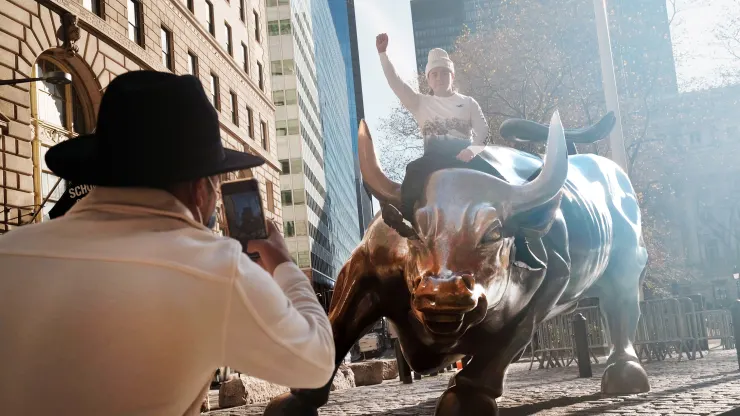The stock market could hit a milestone if the Dow Jones Industrial Average reaches 40,000.
However, even as stocks have climbed higher, investors are worried there could be a pullback, financial advisors say.
They’re not alone in those concerns.
A recent CNBC survey of investment professionals found 61% think the market has run too far too fast and a market drop could be coming.
“It does feel like we’re at an inflection point where things could go either way,” said Christine Benz, director of personal finance and retirement planning at Morningstar.
Will there be a pullback?
After a mostly uninterrupted market rally over the past four or five months, it would not be surprising to see a pullback, said Angelo Kourkafas, senior investment strategist at Edward Jones.
That would more likely come in the form of a temporary correction rather than a prolonged bear market, he said.
For investors who have gravitated toward cash, certificates of deposit, or bonds, a pullback may be an opportunity to deploy those funds in the market, Kourkafas said.
If you’re investing toward your retirement or other life goals, it’s best to avoid trying to time the market, said Ted Jenkin, a certified financial planner and the CEO and founder of oXYGen Financial, a financial advisory and wealth management firm based in Atlanta.
“The stock market is a long-term investment,” said Jenkin, who is also a member of CNBC’s Financial Advisor Council.
Will the election hurt the markets?
Investors are jittery that the presidential election results may throw the markets off track, surveys show.
But experts say those worries are misguided.
“It is really very hard to find any evidence in the data that politics is a long-term determinant of market performance,” Kourkafas said.
However, there may be increased volatility in the months preceding the election, he said.
What’s unique this time around is we are already familiar with both of the likely candidates — current President Joe Biden and former President Donald Trump — and the markets have performed equally well under both leaders, he said.
Instead, the outlook may depend more on other factors such as interest rates, corporate earnings and economic growth, he said.
Financial advisors including Louis Barajas, a CFP and enrolled agent, said their clients are concerned the election may affect their portfolios.
“I tell them, ‘Listen, presidents come, presidents go, the economy’s going to change. But in the long term, the market tends to be up,’” said Barajas, who is CEO of International Private Wealth Advisors in Irvine, California, and also a member of the CNBC FA Council.
Barajas said he steers his clients to focus on their personal goals rather than on outside events.
How to make sure you’re protected ‘no matter what happens’
Today’s market uncertainty is a reminder of the value of humility, said Morningstar’s Benz.
And the best way to express humility in portfolios is to diversify, she said.
“No matter what happens, we’re reasonably well protected,” Benz said.
For young investors, that may mean moving away from U.S. stocks to non-U.S. holdings, she said. That may be done through a fund that reflects global market capitalization, such as the Vanguard Total World Stock ETF.
Older investors may want to take advantage of higher fixed-income yields and add safer assets to their portfolios, she said. That can include cash and short- and intermediate-term high-quality bonds to build a runway to spend from, even if stocks do go down.
“You can have a safer portfolio and expect to earn a decent rate of return today,” Benz said.

